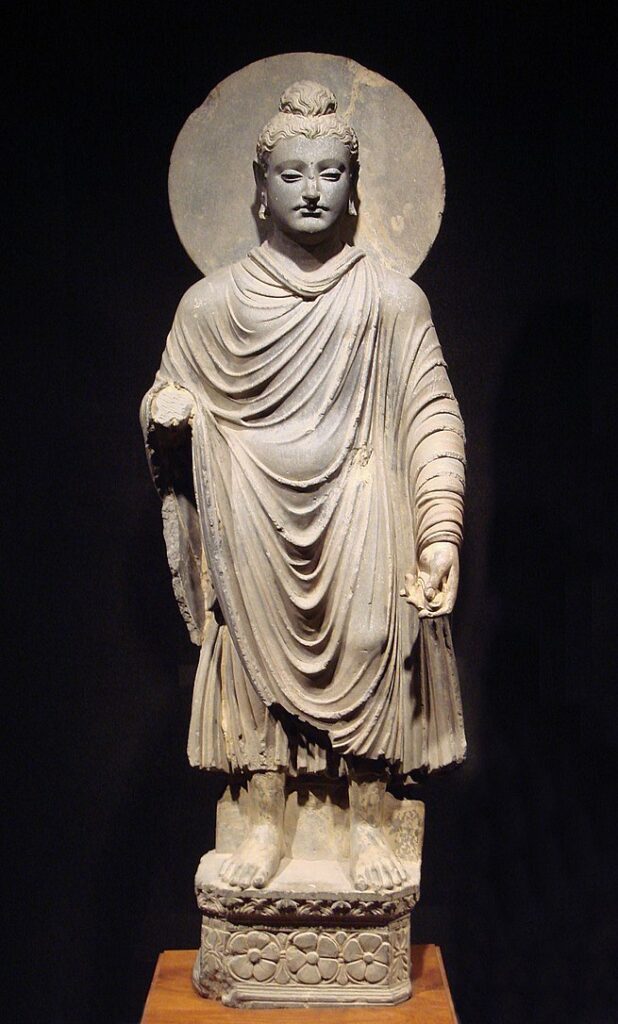Main Difference
The main difference between Hinduism and Buddhism is that the Hinduism is a religion and way of life and Buddhism is a religion founded by the Buddha.
-
Hinduism
Hinduism is an Indian religion and dharma, or way of life, widely practised in the Indian subcontinent and parts of Southeast Asia. Hinduism has been called the oldest religion in the world, and some practitioners and scholars refer to it as Sanātana Dharma, “the eternal tradition”, or the “eternal way”, beyond human history. Scholars regard Hinduism as a fusion or synthesis of various Indian cultures and traditions, with diverse roots and no founder. This “Hindu synthesis” started to develop between 500 BCE and 300 CE, after the end of the Vedic period (1500 BCE to 500 BCE), and flourished in the medieval period, with the decline of Buddhism in India.Although Hinduism contains a broad range of philosophies, it is linked by shared concepts, recognisable rituals, cosmology, shared textual resources, and pilgrimage to sacred sites. Hindu texts are classified into Śruti (“heard”) and Smṛti (“remembered”). These texts discuss theology, philosophy, mythology, Vedic yajna, Yoga, agamic rituals, and temple building, among other topics. Major scriptures include the Vedas and Upanishads, the Bhagavad Gita, and the Āgamas. Sources of authority and eternal truths in its texts play an important role, but there is also a strong Hindu tradition of questioning authority in order to deepen the understanding of these truths and to further develop the tradition.Prominent themes in Hindu beliefs include the four Puruṣārthas, the proper goals or aims of human life, namely Dharma (ethics/duties), Artha (prosperity/work), Kama (desires/passions) and Moksha (liberation/freedom from the cycle of death and rebirth/salvation); karma (action, intent and consequences), Saṃsāra (cycle of death and rebirth), and the various Yogas (paths or practices to attain moksha). Hindu practices include rituals such as puja (worship) and recitations, japa, meditation, family-oriented rites of passage, annual festivals, and occasional pilgrimages. Some Hindus leave their social world and material possessions, then engage in lifelong Sannyasa (monastic practices) to achieve Moksha. Hinduism prescribes the eternal duties, such as honesty, refraining from injuring living beings (ahimsa), patience, forbearance, self-restraint, and compassion, among others. The four largest denominations of Hinduism are the Vaishnavism, Shaivism, Shaktism and Smartism.Hinduism is the world’s third largest religion; its followers, known as Hindus, constitute about 1.15 billion, or 15–16% of the global population. Hinduism is the most widely professed faith in India, Nepal and Mauritius. It is also the predominant religion in Bali, Indonesia. Significant Hindu communities are also found in the Caribbean, Africa, North America, and other countries.
-
Buddhism
Buddhism (, US also ) is the world’s fourth-largest religion with over 520 million followers, or over 7% of the global population, known as Buddhists.
An Indian religion, Buddhism encompasses a variety of traditions, beliefs and spiritual practices largely based on original teachings attributed to the Buddha and resulting interpreted philosophies. Buddhism originated in ancient India as a Sramana tradition sometime between the 6th and 4th centuries BCE, spreading through much of Asia. Two major extant branches of Buddhism are generally recognized by scholars: Theravada (Pali: “The School of the Elders”) and Mahayana (Sanskrit: “The Great Vehicle”).
All Buddhist traditions share the goal of overcoming suffering and the cycle of death and rebirth, either by the attainment of Nirvana or through the path of Buddhahood. Buddhist schools vary in their interpretation of the path to liberation, the relative importance and canonicity assigned to the various Buddhist texts, and their specific teachings and practices. Widely observed practices include taking refuge in the Buddha, the Dharma and the Sangha, observance of moral precepts, monasticism, meditation, and the cultivation of the Paramitas (virtues).
Theravada Buddhism has a widespread following in Sri Lanka and Southeast Asia. Mahayana, which includes the traditions of Pure Land, Zen, Nichiren Buddhism, Shingon and Tiantai (Tendai), is found throughout East Asia.
Vajrayana, a body of teachings attributed to Indian adepts, may be viewed as a separate branch or as an aspect of Mahayana Buddhism. Tibetan Buddhism, which preserves the Vajrayana teachings of eighth-century India, is practiced in the countries of the Himalayan region, Mongolia, and Kalmykia.
-
Hinduism (noun)
a major religious and cultural tradition of South Asia, which developed from Vedic religion.
-
Buddhism (noun)
a widespread Asian religion or philosophy, founded by Siddartha Gautama in north-eastern India in the 5th century BC.

